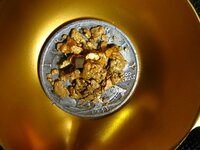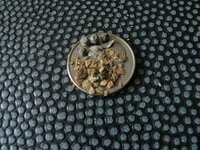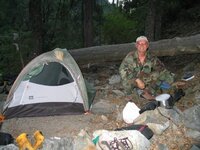starsplitter
Sr. Member
- Jan 20, 2007
- 422
- 27
Silly question here...
if my gold detector can pick up flakes, nuggets, and even black sand that might contain gold, why not just walk up and down the stream with the machine? Why pan? Or, why not save the panning until the detector has picked up significant target groupings?
Thanks.
if my gold detector can pick up flakes, nuggets, and even black sand that might contain gold, why not just walk up and down the stream with the machine? Why pan? Or, why not save the panning until the detector has picked up significant target groupings?
Thanks.
Amazon Forum Fav 👍
Upvote
0











